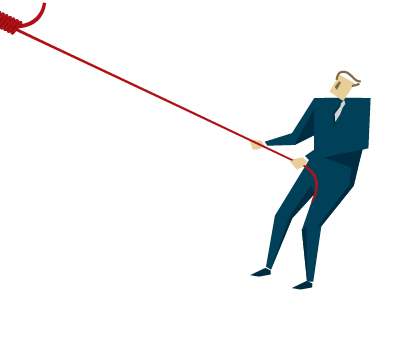
By Kevin Duggan, ICMA-CM
Mistakes, even sometimes extremely serious ones, are often forgiven. Dishonesty usually is not. So why is it so common for people to convert an honest mistake into an ethical crisis? And more importantly, how can this pitfall be avoided?
The Problem
Whatever you call them, mistakes, errors, accidents, poor judgment, or whatever, cannot be avoided in either your personal or professional life. Because this is a challenge faced by all of us, most mistakes while not necessarily without consequences can be understood.
It is surprisingly common for an ethical crisis to be created by an individual’s or organization’s response to a mistake or error in judgment that, in and of itself, does not represent an ethical issue. Often, before it is fully appreciated, a forgivable mistake can be transformed into an often-insurmountable problem.
“The cover-up being worse than the crime” has essentially become a cliché and has reverberated over the decades with many, many examples--two of the most notorious being Watergate and the Penn State child abuse scandal.
The Causes
Why is this such a common challenge? The varied reasons include:
Embarrassment. Making a mistake can be quite embarrassing—particularly when it is a personal misstep. There can be a significant temptation to do whatever is necessary to avoid such embarrassment. What is often underestimated is the potential for much greater embarrassment if the initial problem is not dealt with appropriately.
Perfectionism. Leaders of organizations usually take significant pride in their work and the work of their organizations being as error free as possible. It can be painful to find that either you personally or the organization for which you are responsible has made a significant error.
Our desire, no matter how unrealistic, for an error-free organization can make it difficult for us to completely identify and address in a forthright manner both our mistakes and the mistakes of others for which we are responsible.
Denial. When faced with a difficult situation, we can too quickly move into a mode of denial. This can include trying to rationalize that a mistake was not really a mistake or was not our fault or the fault of our organization.
Rationalization. Similar to denial, we can never underestimate our ability to rationalize away a regrettable situation. Oftentimes, our concerns regarding the consequences of an unfortunate situation will allow us to minimize the impact and significance of the situation.
It can be tempting to spin an issue to allow us to believe it is a less serious problem than it actually is. It is important to find ways to counteract the natural tendency to minimize the perceived significance of a difficult challenge.
Fear of consequences. Often individuals and organizations are fearful of the consequences of their missteps. While not surprising, since the consequences can indeed be difficult to deal with, what is often underestimated are the consequences of allowing fear to govern your response to a problem. Fear of short-term pain can result in much longer-term negative consequences.
Strategies to Employ
Timely and full disclosure. The most effective way to deal with a mistake is full and timely disclosure. While the mistake itself needs to be corrected, equally important is to quickly determine who should appropriately be notified of the problem and to provide that notification.
While this usually includes the elected board, it can also include members of the public, community organizations, press, and employees. While this can be, quite frankly, a painful exercise and can exacerbate an already difficult situation, not being forthright and open can lead to much greater problems.
Being mindful that while you want to make sure you have a good handle on the facts of a situation, delaying too long in disclosing the problem can create as big a problem as if you never disclosed the issue at all. Also make sure that you get all the relevant information out at once—no matter how painful.
Providing only partial information, with the risk of more damaging information leaking out over time, will only make the issue more difficult to overcome.
Getting objective perspectives. As noted before, rationalization and denial can be among the most significant reasons for creating an unnecessary ethical crisis. Among the best defenses for both of these challenges is getting the opinion of individuals you respect who do not have anything to lose or gain by the outcome of your decision. It is, of course, ultimately up to us to be willing to accept good advice.
Focus on solving the problem. An essential step in resolving a problem is fully owning the issue and its consequences. Being willing to confront a problem and its impacts avoids the risk of allowing denial to delay a full and effective response.
A key to increasing the odds of successfully recovering from a mistake is expeditiously addressing the impacts of the mistake and taking action to avoid a recurrence of the error. The more time and attention that is spent denying or minimizing the impact of a mistake, the less effective the organization will be in resolving and recovering from the problem.
Your Decision to Make
As a leader you must understand that it is a certainty that you and your organization will from time to time make mistakes. What we need to stay focused on is the principle that we will ultimately be judged on how we respond to these mistakes as much as, or perhaps even more than, the mistake itself.
At all costs, avoid turning honest mistakes into ethical crises.
Kevin Duggan is ICMA West Coast Regional Director, Mountain View, California (kduggan@icma.org) and a former city manager of Mountain View.
New, Reduced Membership Dues
A new, reduced dues rate is available for CAOs/ACAOs, along with additional discounts for those in smaller communities, has been implemented. Learn more and be sure to join or renew today!
